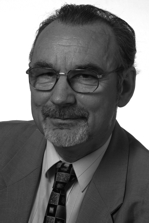The (Left-Wing) Latin American Opposition to the US – for How Much Longer?
The death of the Venezuelan populist leader Hugo Chávez and his successor’s narrow victory at the presidential elections have once again brought to the fore the abundance of left and centre-left governments in Latin America and the issue of cooperation between the Americas.
Although the emergence of communists is mostly connected with the Cuban revolution, it remains a fact that the appointment of them as ministers was actually first undertaken by the dictator Fulgencio Batista (later overthrown by Fidel Castro) and motivated by his wish to play along in the world politics on the winners’ side during the Second World War in 1943. Despite the establishment of the Pan-American Union in 1889 and the Organization of American States in 1948, at the initiative of the US, the first South and North American summit convened by the US President Dwight Eisenhower in 1956 did more harm than good, as most of the 19 participants were (due to the weakness of democratic traditions) US-friendly dictators, six of whom were either killed or overthrown before the victory of the Cuban revolution. The supremacy in the nuclear and missile weaponry development enabled the Soviet Union to turn Cuba into a socialist island in Latin America but for decades it remained the only success story of the left in this region. On the other hand, the US failed to fulfil its promise given in 1967 to support the establishment of the Latin American common market by 1980, because its southern neighbours were able to form only small groups and the idea of the integration of the states did not take shape. Following the West-European example, the North American Free Trade Agreement uniting the US, Canada and Mexico was signed in 1994, and thanks to the recent political reforms President Bill Clinton had the chance to convene the first summit of the „democratically elected presidents of the Americas” in 1994. However, the Free Trade Area of Americas (FTAA; ALCA in Spanish) offered by Clinton to his southern neighbours was snubbed, and it was even voted out at the fourth summit in 2005 in the presence of president Bush. By that time, left or centre-left governments had repeatedly been victorious at the elections altogether in 12 Latin American countries, which confirmed that the left wing had clearly obtained a firm political basis. Their standard-bearer was the former rebel Colonel Hugo Chávez who, after being freed from prison, adopted the rules of democracy and was elected the President of Venezuela in 1998. His victory was supported by the power distribution pact between three right-wing parties which in 40 years had turned democracy and elections into a farce. At first, Chávez attempted to establish a similar political system in Venezuela as had been done by Charles de Gaulle in France, and to introduce the so-called Third Way politics of Tony Blair et al. His local role model was the South American Liberator Simón de Bolívar (1783–1830) who, unlike the American founding fathers, had opposed slavery and sided with natives from the very beginning. Bolívar also attempted to join the freed colonies and thus considered the US a hegemony that should be feared. These ideas formed the basis for Chávez’s Bolivarian Revolution which after President Bush’s support of the coup d’etat in 2002 turned into a severe conflict between Venezuela and the US. Using the oil and gas revenue, Chávez improved the life of the poorer layers of society by renovating buildings and roads and establishing cooperatives, and sent oil to Cuba, for which he was „rewarded” by doctors and teachers, and he also formed the association of left-wing states ALBA. Following the return of Russia to Latin America, the moderately leftist and centre-wing representatives of Brazil, Argentina and other countries decided not to back Chávez’s radical ideas and in the elections of 2012 Chávez decided to be the leader of the coalition rather than the Socialist Party he had established. The narrow victory of his successor Nicolás Maduro forms the basis for the decrease of the radical left influence in the region and the establishment of cooperation with the US and the European Union which signed a partnership agreement with the area in 2011.
